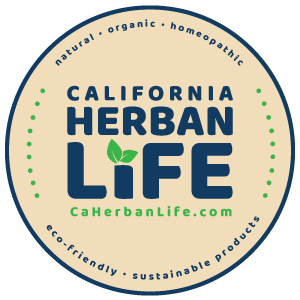While California’s efforts to improve the health and wellness industry through chemical bans are noteworthy, it’s important to clarify that the 24-chemical ban wasn’t specifically for the whole industry, but targeted personal care products and cosmetics. This legislation, the Toxic-Free Cosmetics Act (AB 2762), was signed into law on September 30, 2020, but the ban itself takes effect on January 1, 2025.
Here’s a breakdown of the 24 chemicals banned under the Toxic-Free Cosmetics Act:
Carcinogens:
- 1,4-Dioxane
- Acetaldehyde
- Benzene
- Chloromethylmethyl ether (CMME)
- Diethyl phthalate (DEP)
- Formaldehyde
- Methylene chloride
- Methylisothiazolinone (MIT)
- o-Nitrotoluene
- Polychlorinated biphenyls (PCBs)
- Propylene glycol (PG)
- Siloxanes
Reproductive Toxicants:
- Benzophenone-3 (Oxybenzone)
- Cyclohexane
- DEHP
- Ethanol, 2-bromo-, 2-nitro-, 1,3-propandiol, acetate (NTP)
- Formaldehyde
- Methyl eugenol
- Phthalates
- Toluene
Endocrine Disruptors:
- Benzophenone-3 (Oxybenzone)
- Bisphenol A (BPA)
- Formaldehyde
- Parabens
- Triclosan
These chemicals were banned due to their potential health risks, including links to cancer, reproductive harm, and endocrine disruption. The goal of the Toxic-Free Cosmetics Act is to protect Californians from exposure to these potentially harmful chemicals and encourage the development of safer personal care products.
It’s important to note that in October 2023, California passed an amendment to the Toxic-Free Cosmetics Act, the Clean & Safe Cosmetics Act (AB 496), which bans 26 additional chemicals. However, this new ban takes effect in 2027.
Natural Alternatives to Chemical Toxins in Cosmetics
While some cosmetic chemicals have potential health concerns, it’s important to remember that not all chemicals are bad. Many synthetic ingredients contribute to product efficacy and safety, like preservatives that prevent bacterial growth. However, if you’re looking for ways to reduce your exposure to potentially harmful chemicals in cosmetics and embrace a more natural approach, here are some fantastic alternatives:
Skincare:
- Moisturizers: Instead of petroleum-based creams, try oils like jojoba, coconut, or olive oil, rich in fatty acids and antioxidants. Shea butter and aloe vera are also great options.
- Cleansers: Ditch harsh synthetic cleansers for gentler options like honey (antibacterial), clay masks (detoxifying), or a simple oil cleanse with rosehip or grapeseed oil followed by a warm washcloth.
- Exfoliators: Skip the microplastics and opt for natural scrubs like ground oats, sugar, coffee grounds, or even baking soda (for oily skin).
Makeup:
- Foundation: Look for mineral-based formulas with natural pigments like zinc oxide and titanium dioxide. They offer sun protection and often work well for sensitive skin.
- Lipstick and blush: Choose formulas made with beeswax, coconut oil, and natural dyes like beetroot or berries.
- Mascara: Try coconut charcoal for a natural black tint or henna for brows and lashes.
Haircare:
- Shampoo and conditioner: Swap synthetic sulfates for gentler alternatives like castile soap or apple cider vinegar. Coconut oil can act as a natural conditioner.
- Hair dyes: Henna is a safe and vibrant natural alternative to chemical dyes.
General Tips:
- Read labels carefully: Look for products with recognizable natural ingredients and avoid long, unpronounceable chemicals.
- DIY at home: There are many recipes online for natural skincare products using simple ingredients from your kitchen.
- Patch test: Always test any new product on a small area of skin before applying it to your entire face.
- Consult a dermatologist: If you have any skin concerns, it’s always best to consult a professional for personalized advice.
Remember, “natural” doesn’t always guarantee safety. Some plants and ingredients can be irritating or allergenic. So, do your research, patch test, and prioritize gentle approaches if you’re new to natural cosmetics.
While switching to natural alternatives may not entirely eliminate exposure to all potentially harmful chemicals, it can be a rewarding journey towards a more conscious and holistic approach to your beauty routine. Enjoy the process of exploring natural ingredients and discovering what works best for you!




